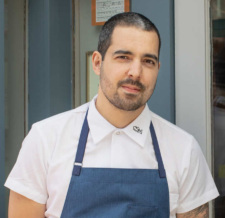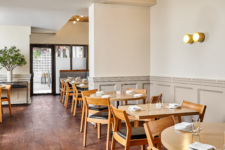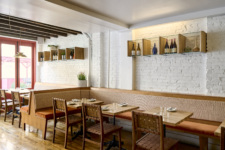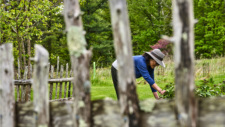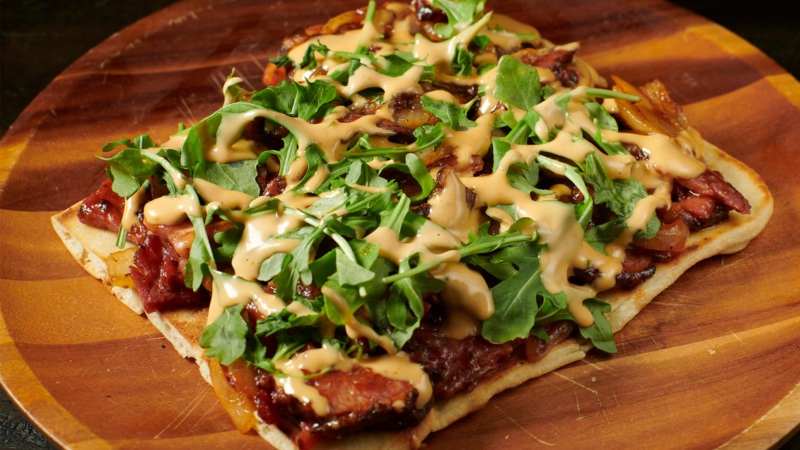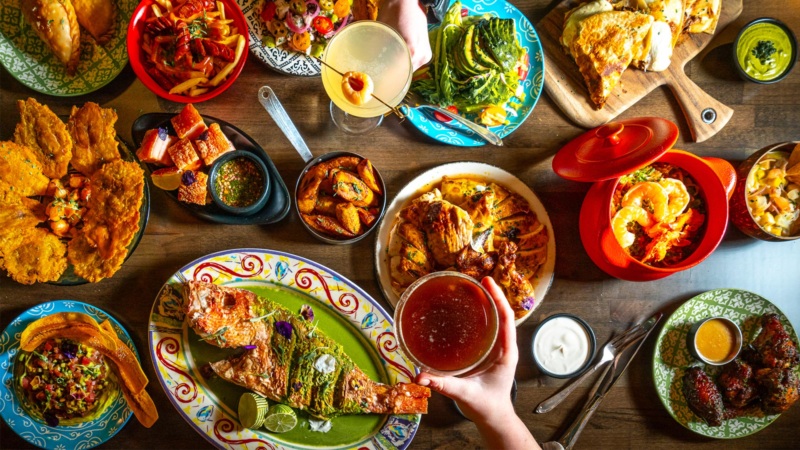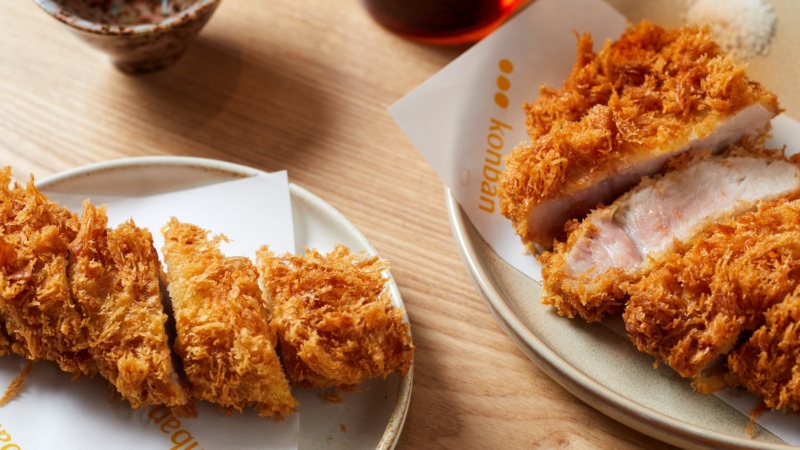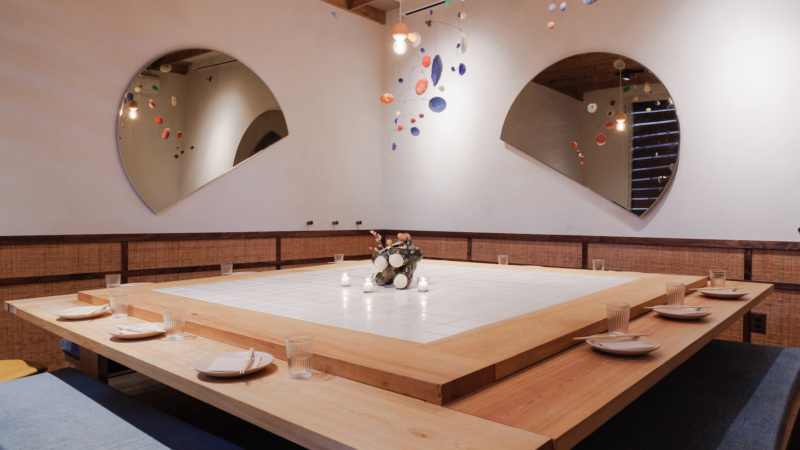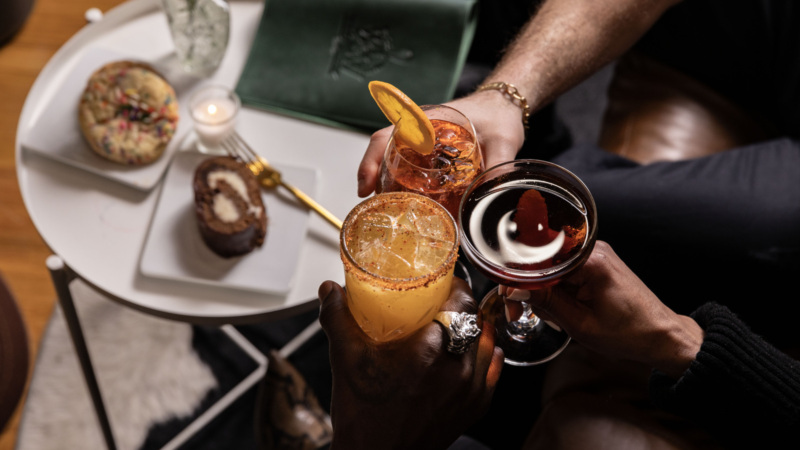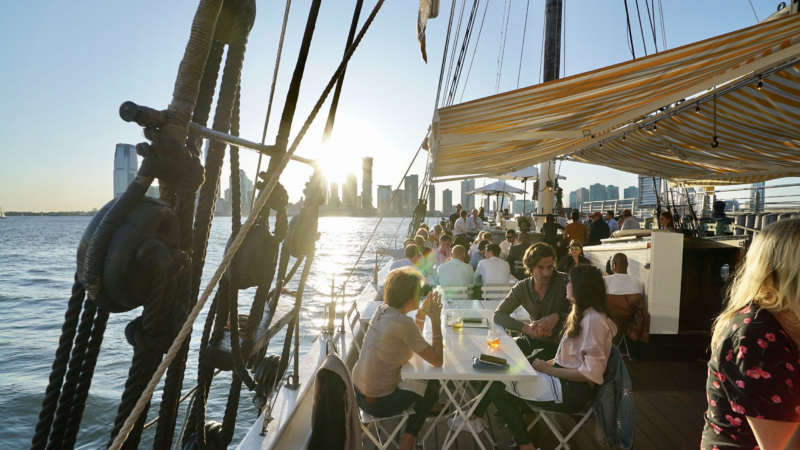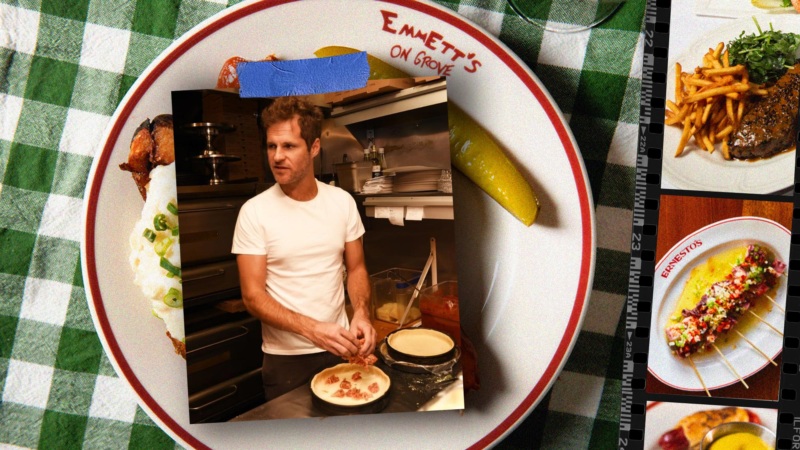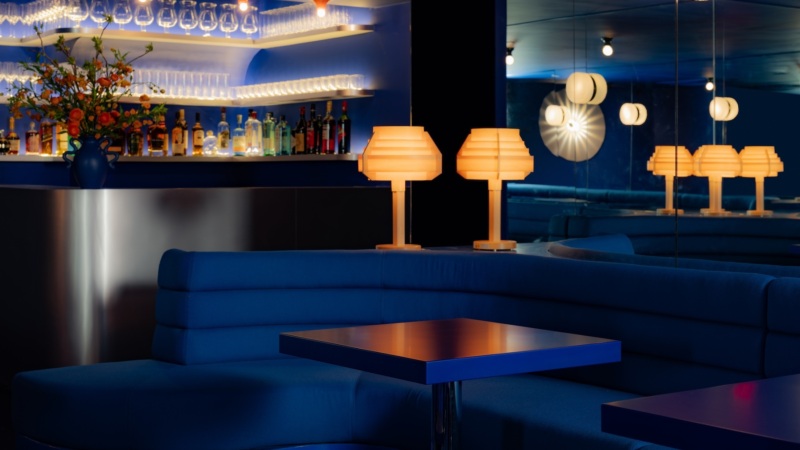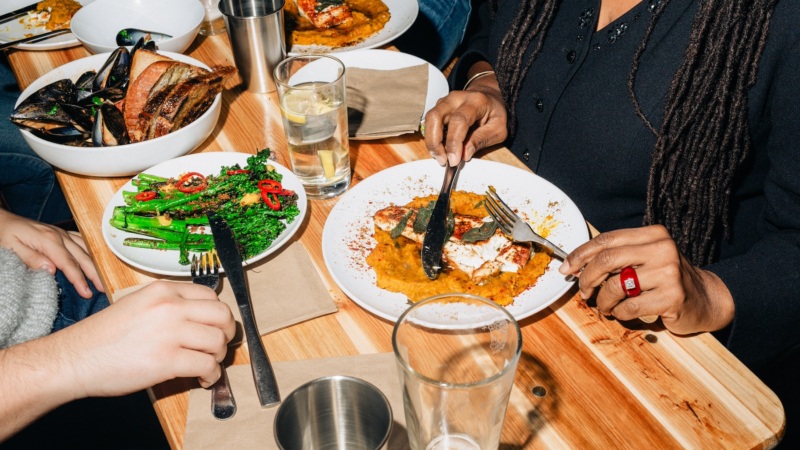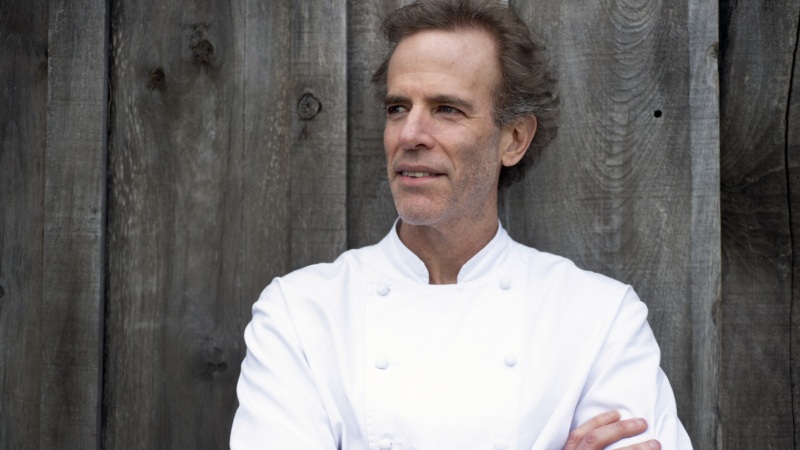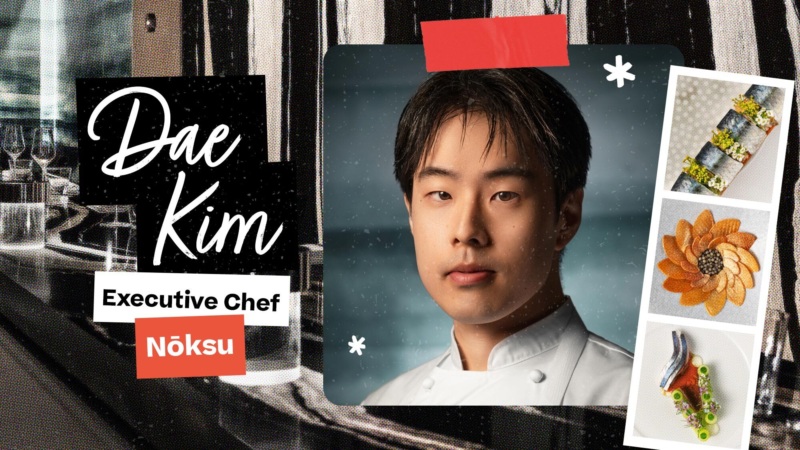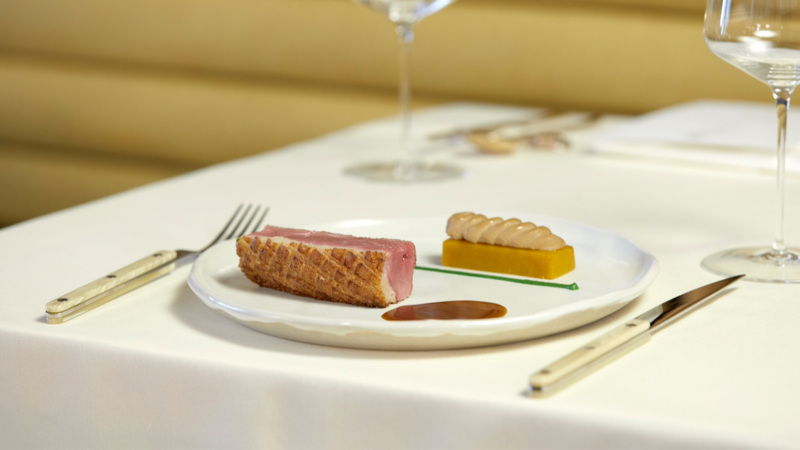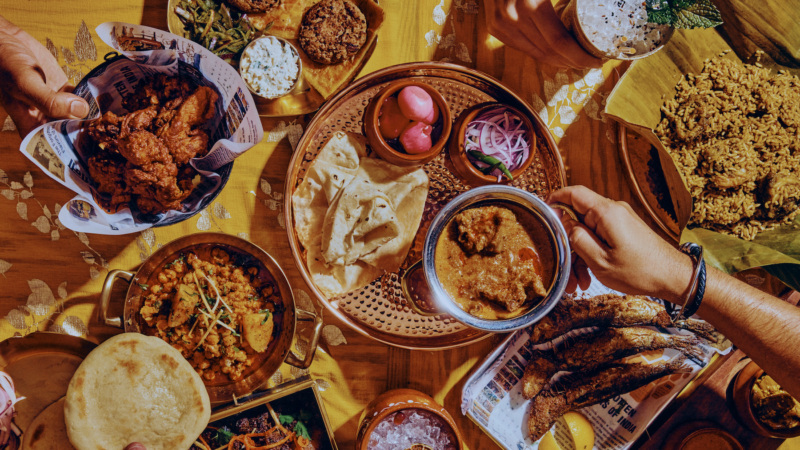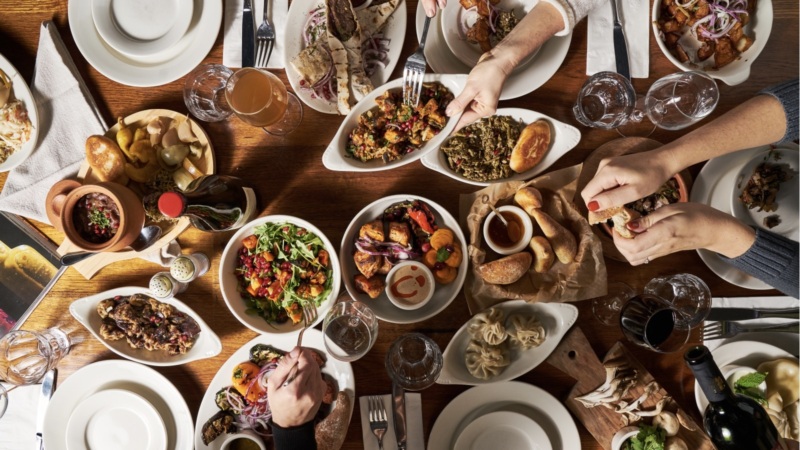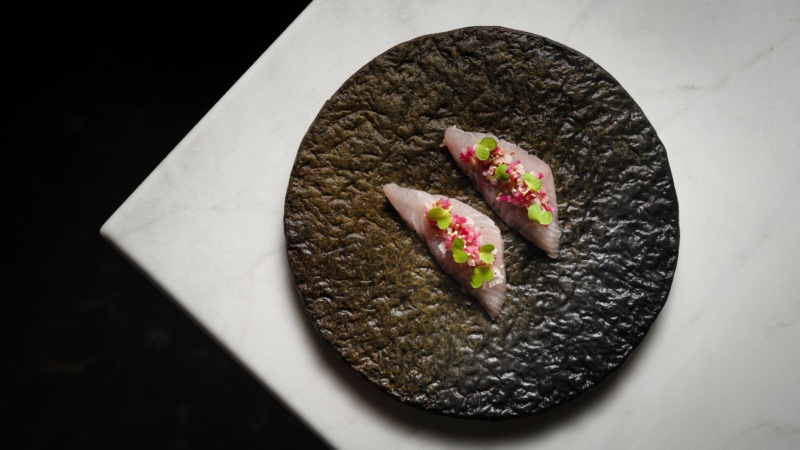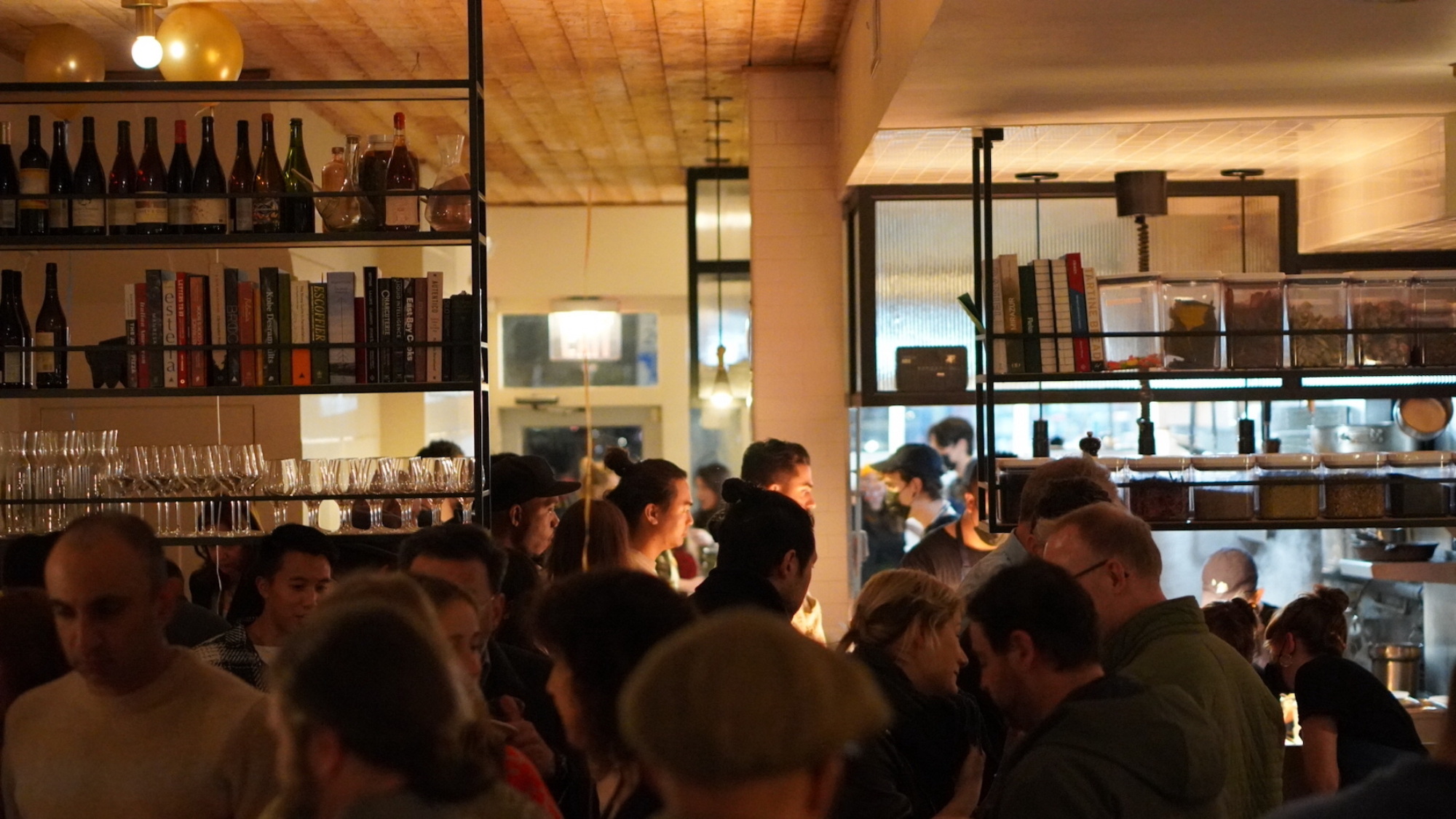
Oxalis Chef Nico Russell on Why You Can’t Have a Restaurant Without a Community
In a month, one of Brooklyn’s most celebrated restaurants, Michelin-starred Oxalis, is closing its doors — at least temporarily — when the clock strikes midnight and we all collectively ring in the new year.
The news, when it was first announced earlier last month, took many by surprise. Why would the owners behind a successful, critically acclaimed fine-dining restaurant like Oxalis — chef Nico Russell, partner Steve Wong, and beverage director and partner Piper Kristensen — decide to close it? And why reopen the space as an all-day bakery or café?
Throughout its five-year life span as a brick-and-mortar restaurant, Oxalis has continuously evolved: First opening as a trailblazing spot serving a relatively affordable tasting menu alongside a more casual a la carte menu, to establishing itself as a fine-dining fixture after receiving a Michelin star in its first year in business. The pandemic wrought its own challenges, and like many others, Oxalis pivoted to selling groceries and highly coveted burritos to stay afloat. The partners also opened a second restaurant, Place des Fêtes, in 2022.
We recently sat down with Russell to ask him about the decision to close and eventually reopen Oxalis, and what he’s got planned next. Here’s what he had to say.
Editor’s Note: This interview has been edited for length and clarity.
Resy: How have people, especially your regulars, responded to the news?
Russell: They’re mad at us, but they understand. Post-pandemic, it’s just a different world we live in, and it’s not like the restaurant boom of the last decade. We want to find a medium where we can have the space we want and the restaurant we’ve always wanted, but also have other spaces that can serve the community and stay true to who we are.
So, how long have you been thinking about closing Oxalis? What prompted this decision?
It’s been something we started talking seriously about in the spring and we decided to do it this year. Summer was a little slower than we would have liked. The pandemic was crazy, but it felt really good just serving the community with burritos, jams, bread, and sandwiches; we felt so connected.
Since then, we started to find the dialogue between us and what we were doing feeling a bit disconnected, so we began to explore some options in the spring to see what the transition would like to move Oxalis.
What do you think a new space can afford you that the old space couldn’t?
The layout of the restaurant was kind handed to us in a way that we didn’t have as much control over. And now we’re beginning to think about putting ourselves into a space where we could really build it where it would make the most sense, from the menu to the service; everything would just be a lot more efficient for us than they have been over the last five years. As operators, we want to just become more efficient, but without losing the beautiful touches and magic that Oxalis has.
For example, we’ve always done two menus at Oxalis, too, and going forward, we just want to do one menu. But we always had this concern that only doing one menu would be demanding and might polarize us with the neighborhood. We didn’t want to be the restaurant that no one ate at.
Oxalis has evolved. This space has been great, but it’s a really big space for what we’d like to do. We want something smaller for Oxalis.
Have you found a new home for Oxalis yet?
Not yet. There are a few spaces we’re close on, but we want to focus on getting the café open, and on some other projects coming up. Those are our main priorities.
Will Oxalis still be in Brooklyn?
We want to stay around as close as we can. We’re probably going to rethink the menu. I still want it to feel like us; that’s really important to us. We want our heart and soul in it, and we don’t want to try and rush this out like we did when we first opened, because we wanted so badly to be open after being a pop-up for three years.
When we were a pop-up, it was a way different landscape than it is now. Pop-ups are so much more a part of the dining dialogue now. We didn’t feel part of much of a community other than having some occasional buzz and then it’d stop. It was hard to build up momentum that way, and the push to open Oxalis was so important that when we got here, we realized we should have taken a bit more time with it.
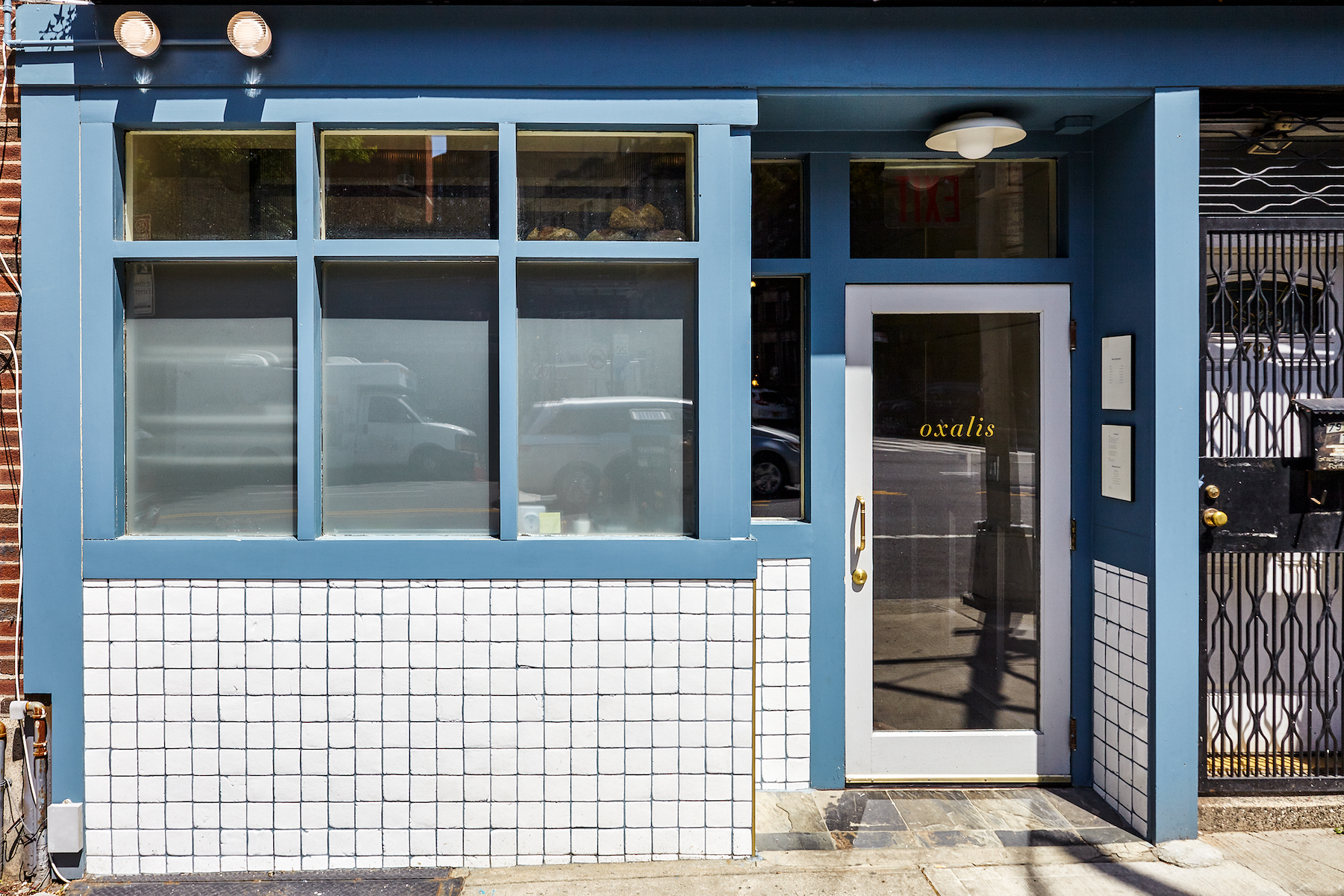
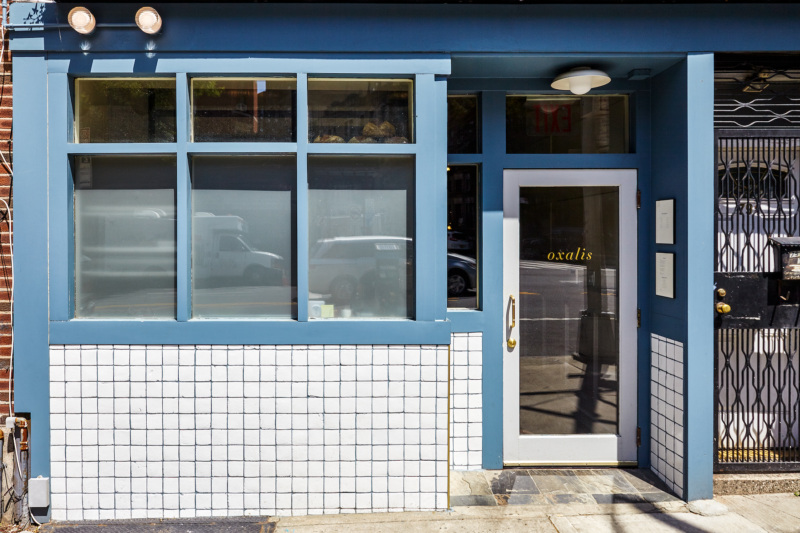
When you first opened Oxalis five years ago, what were your hopes at the time?
We really wanted to be this community-focused restaurant. We had this tasting menu that was both creative and affordable — and I know that’s a hard word, because it means so many different things to other people. We wanted to be accessible. I think we were pretty successful at that.
As operators though, it was really hard to operate that way. It was really demanding. We saw that. We talked to other operators around the time we got our [Michelin] star in 2019 and they told us, “You guys should really take this time and reassess your pricing, because $70 or $60 for this menu is crazy.” And then before we could reassess, the pandemic hit, and we just kind of did whatever we could do.
How has Oxalis evolved over the years?
That’s one thing we’re really proud of — how much we evolved in five years. Compared to the fall of 2018 to now, it’s been amazing to see the changes. We have some staff who have been with us all this time, and it’s so cool to see them, to see their abilities grow and see what they’ve helped create here.
That’s the thing about restaurants in the city — we kind of take them for granted. We’re getting to that time at the end of the year where it’s always about best of lists, the best new restaurant list, but, you know, there’s so much, there’s so much good work that happens with restaurants that have been around, who might be turning five or 10, or 12 or even older. We thought we wanted it to be new and flashy, but we’ve found so much joy just digging into the work over the years.
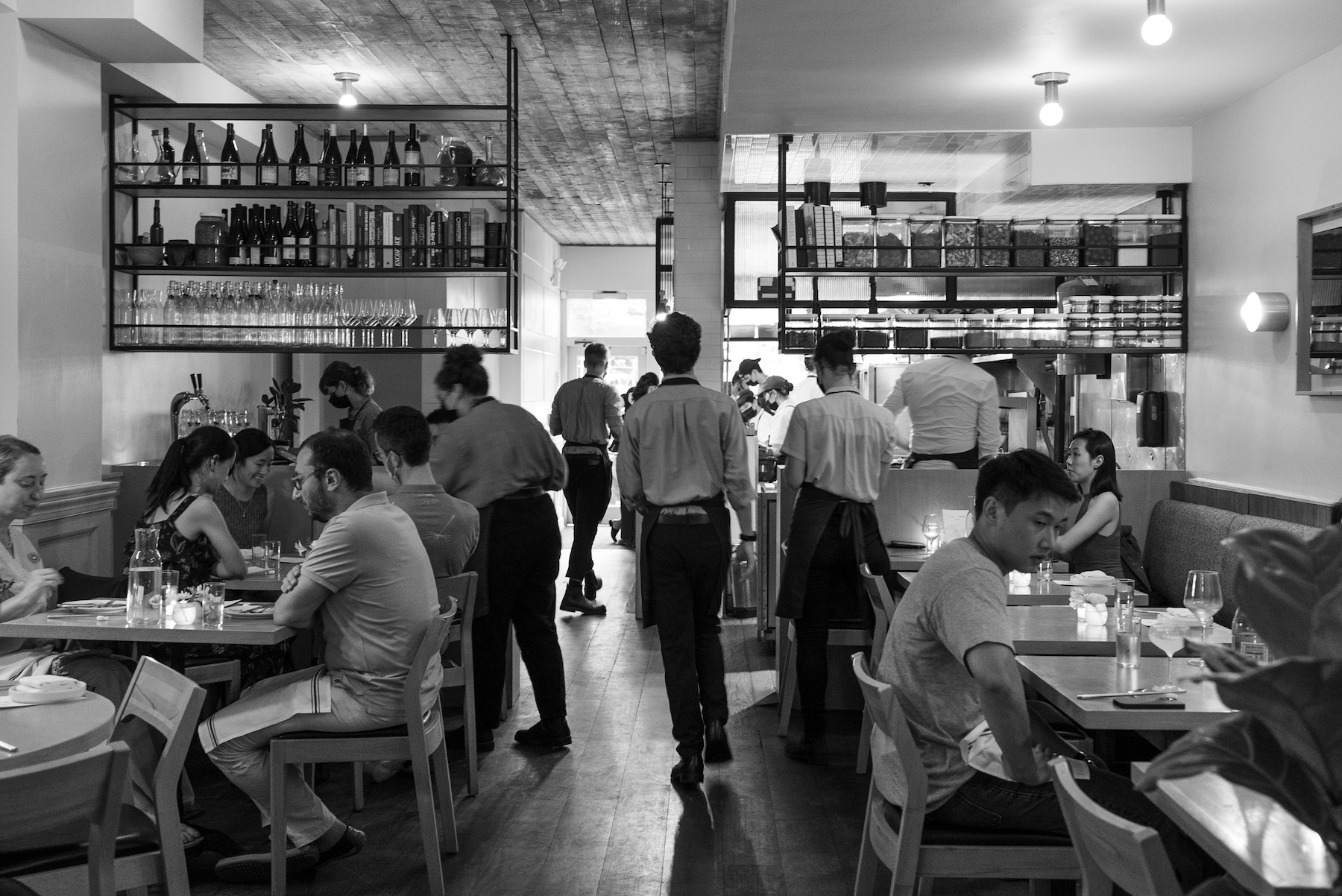
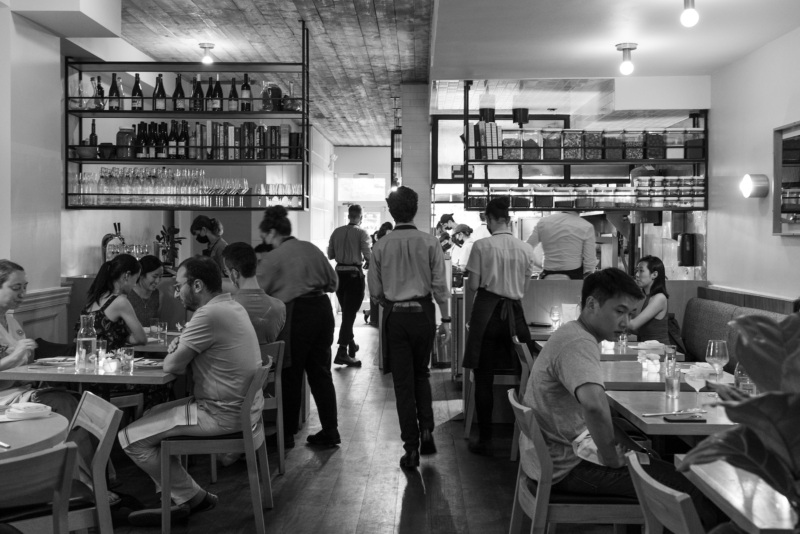
Can you tell us more about that evolution?
When we opened in 2018, we did a lot more volume than we do now. We’re a lot more thoughtful about the kind of the volume that we do and what we do and how we do it, and it’s hard having a menu that is at the price point that we are because so much value is tied to experience, and we just want to make sure that we’re offering the best and making sure that the guests feel that, and our service staff does that so well. I think that’s one thing that really has surprised me over the last five years. I take a lot of pride in our service team; I think they’re incredible, and I think that they offer a very personalized experience in a way that feels really comforting. And that was our goal: to welcome people to the space in a way that lets them know this is personal. We thought about it, you’re important to us, this is a really big deal for us that you came in tonight, and that’s something we’ve just doubled down on.
When we first opened, we thought, “Oh, we’re going to open we’re going to do all these cool things.” But it’s hard opening a restaurant, because you have so many ideas of what you’re going to do with it and then you just kind of ease into what you do. That’s a thing you do in your life, too. You give yourself this timeline, but so much of it is just experiencing it, and living through that stuff. And learning in those moments.
If we were to do it again, I would just take a breath the first year, a lot more than I did. And I would show a lot more trust to the staff in the early days. It’s probably a fault of mine, in the early days, trying to be too control-oriented, and now I just, we, trust our staff so much, and it really resonates with people.
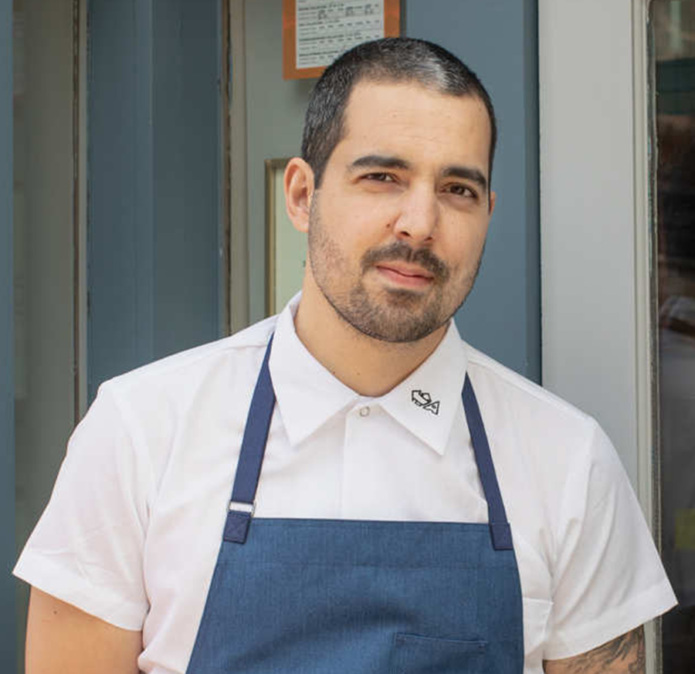
We’ll still be here, but it’ll just be a little different. We just want to be really dedicated to our community and neighbors, to get to know them on a personal level, and to build relationships.— Nico Russell, Chef and Partner, Oxalis
With this next iteration of Oxalis, what do you want to focus on most?
Good quality. That’s something we really try to push on people with our service, beverage, and food. We’re budling a brand that you can trust. If you don’t have that with a restaurant group, it’s hard to continue to open spaces. They’re like spaces without a soul and that’s not who we are.
What are your thoughts on fine dining in New York these days? Is there still a place for it?
I think there are a lot of people who do fine dining really well, and I think the success we have, and I can only speak from our perspective, is that we made something so personal for us that really resonated with people. We want to serve that. You see it with the community-driven part of ourselves and we don’t want to lose those ideals that we have. Not to seem so noble or virtuous, but we want to be thoughtful about cooking and serving people food and being in this privileged space.
I think fine dining is an interesting spot. It’s harder to run a fine-dining restaurant now. If you look at the most recent Michelin Guide awards, so much of those restaurants are sushi spots; there’s a lot of moving away from more of these mid-level fine-dining spaces. People will spend $500 for a sushi counter, and they are different now with the way they spend, and value plays a really big role in that. I think people are being a lot more careful about how and where they spend their money, but fine dining isn’t dead.
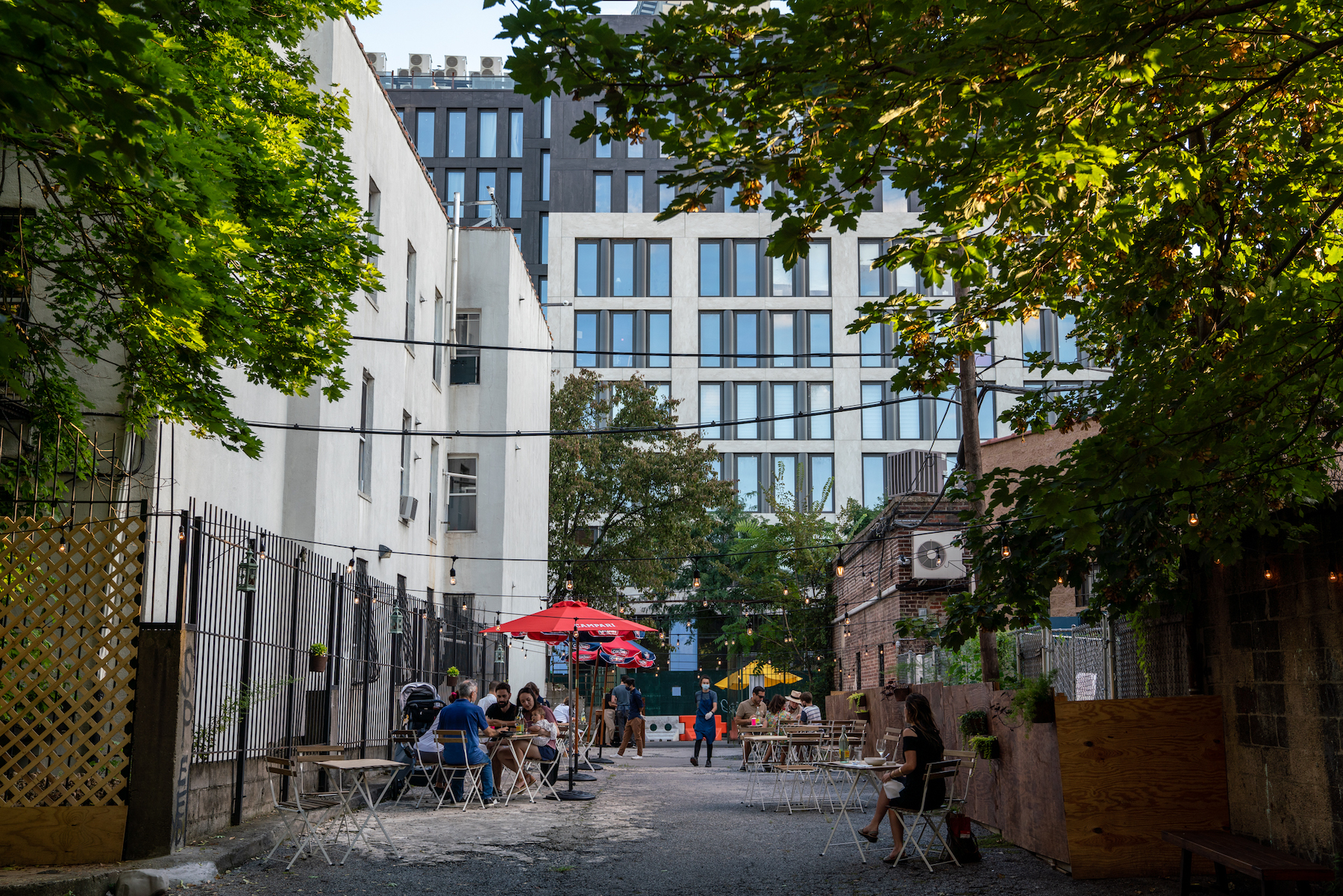
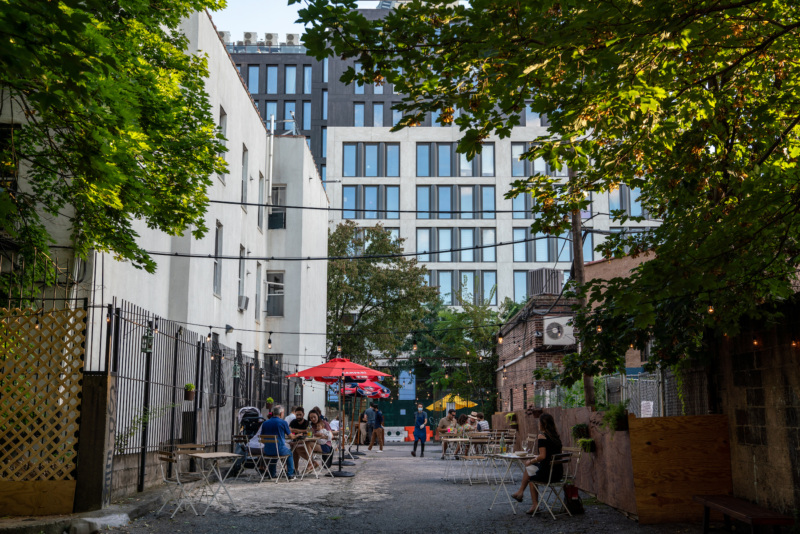
One thing I always thought was interesting about Oxalis was how it really leaned into your very sophisticated style of fine dining, but still managed to feel very accessible, too. How did you balance that? Did those two things ever feel at odds?
The duality of the space was always kind of pulling on us a little bit. We always wanted to appreciate the work of fine dining. That’s one thing that we love about owning and operating a high-caliber restaurant; we get a lot of satisfaction out of that work, from training staff, serving people, cooking at that level, and having this wine knowledge. We get a lot of satisfaction out of that, you know. But we’re not from Crown Heights. I think that was always the thing that we always were very aware of, you know? That’s why we kept the menu price what it was for a long time.
Brunch became a big part of trying our best to keep an option for the community, so that they could still enjoy our food. I know $50 for a set brunch is not the most affordable, but I do think that what we offer for brunch is extremely, extremely great value. But we wanted to make sure that we knew that brunch was always our connection to the neighborhood once our dinner menu started to go upwards of $110 or $120. We’ll always have people come in from all over for brunch and they’ll have a dialogue with us, and I think it really resonates. We want to keep that going in the next iteration of Oxalis.
I think finding ways to keep the community engaged is just super key, and also being that person that they see day in and day out — that builds up a lot of trust with people.
When we announced we were closing, we had some folks come in and say, “There’s nothing like you and it breaks my heart,” and I tell them, we’ll still be here, but it’ll just be a little different. We just want to be really dedicated to our community and neighbors, to get to know them on a personal level, and to build relationships.
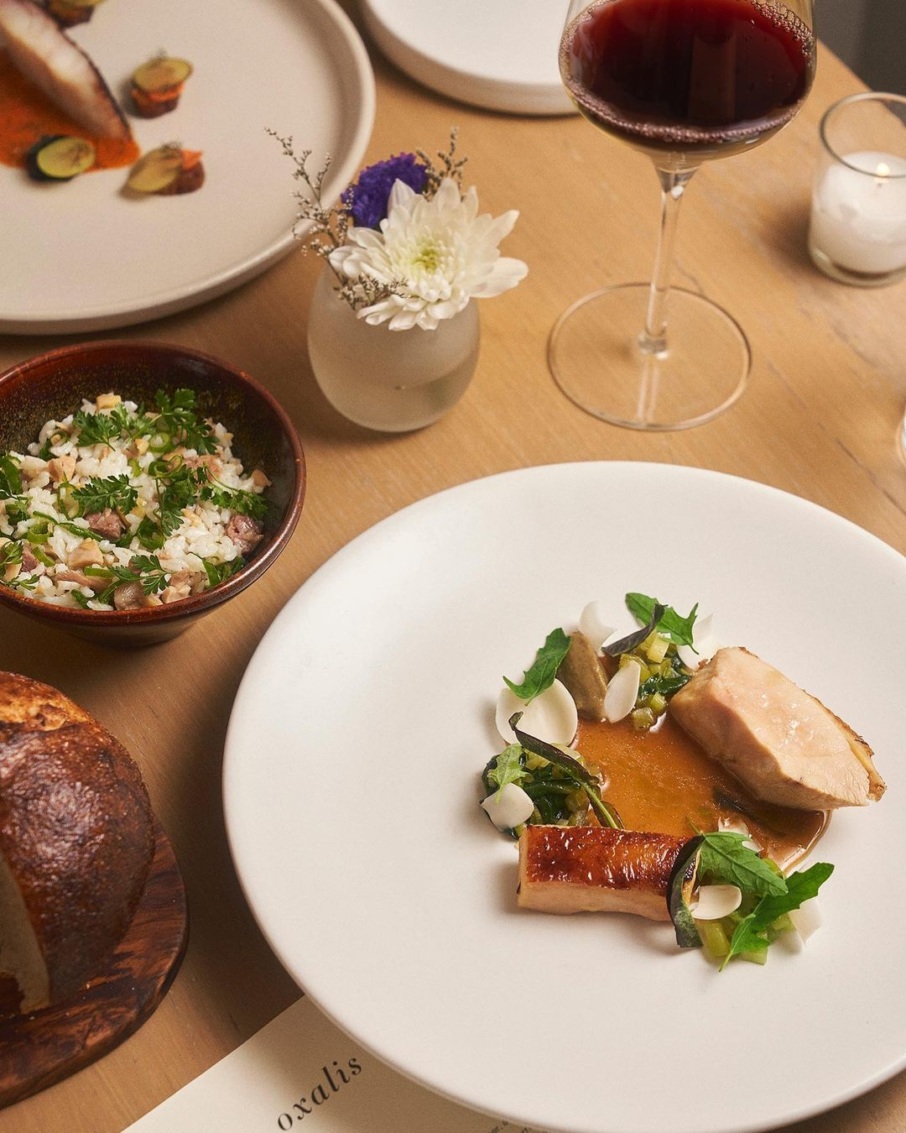
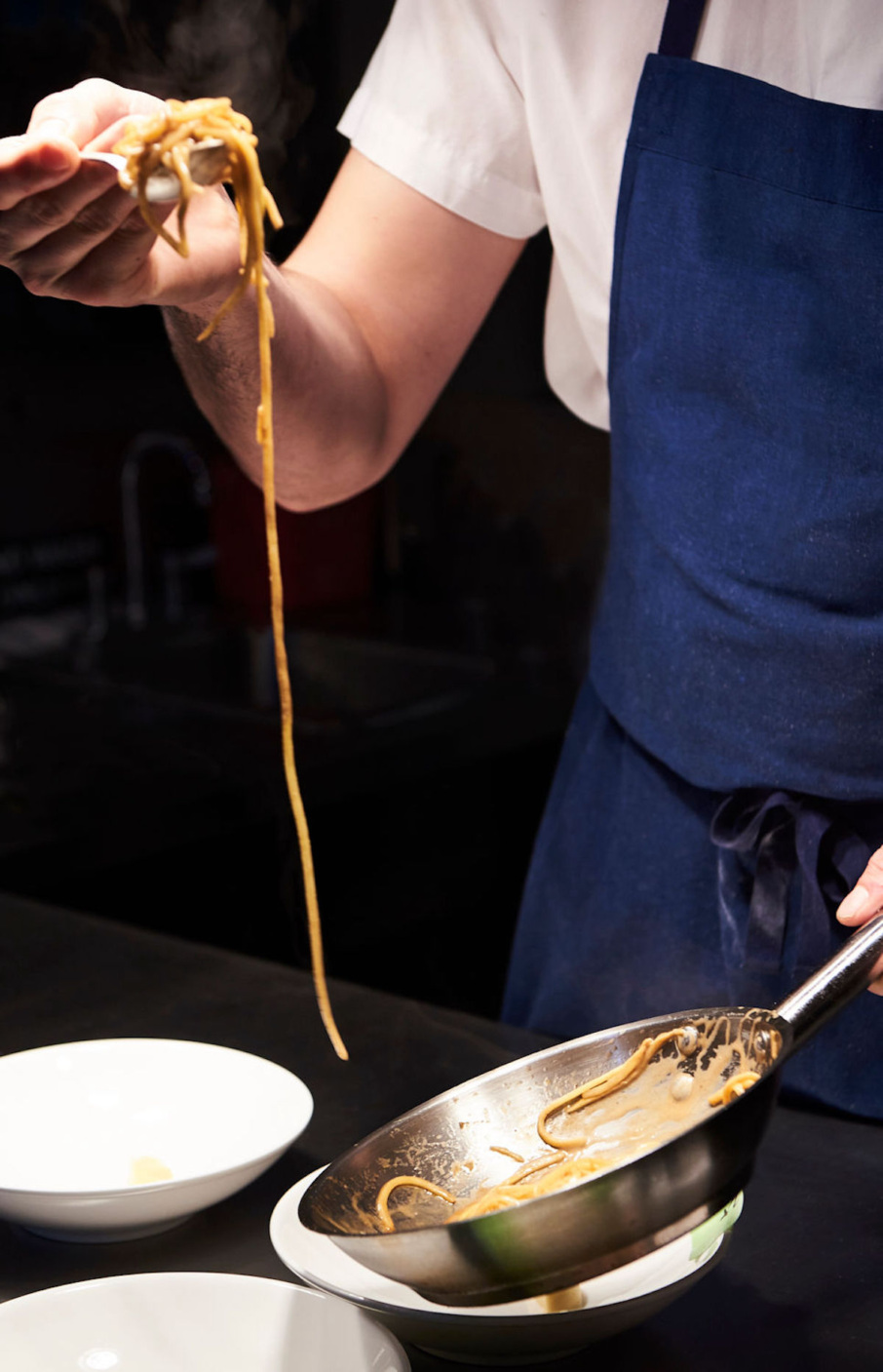
The community focus for Oxalis was also always there from the beginning, but even more so during the pandemic, with the funds you raised for social justice organizations and for how you pivoted to selling groceries as Boxalis.
That’s always been something that has been close to us. We always like to talk about what it means to be a community restaurant, while also being a high-end kind of fine dining restaurant. And we try our best not to sacrifice our ethics. And I think that’s resonated with a lot of people; I know it’s resonated with our staff. Even when we were a pop-up, we were part of those fundraisers as well, because those are things that we also believe in. We’ll always be mindful of that, and we’ll always try to support social justice groups when we can; we believe in that, and we want to give what we can.
How are you planning to celebrate these last few weeks of Oxalis in its original space?
We’ve got the holidays coming up, and New Year’s Eve will be our last night. We’re still trying to figure that out, but I think it will be a beautiful night. And we have our five-year anniversary party on Dec. 4th; that will be a really good night. Our cooks are writing the menu and doing a bunch of stations and passed good. It’ll be a really good vibe with the community and the neighborhood.
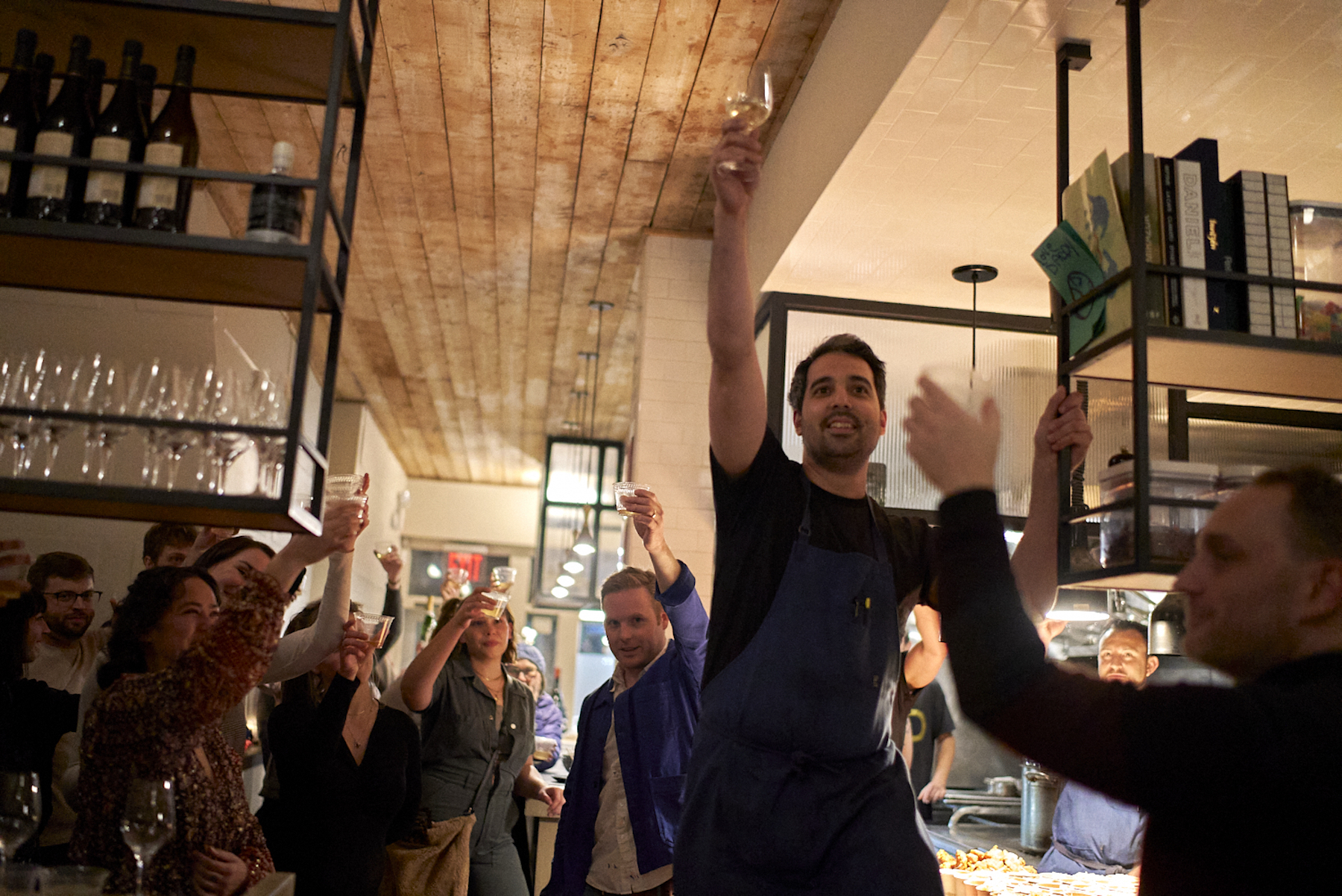
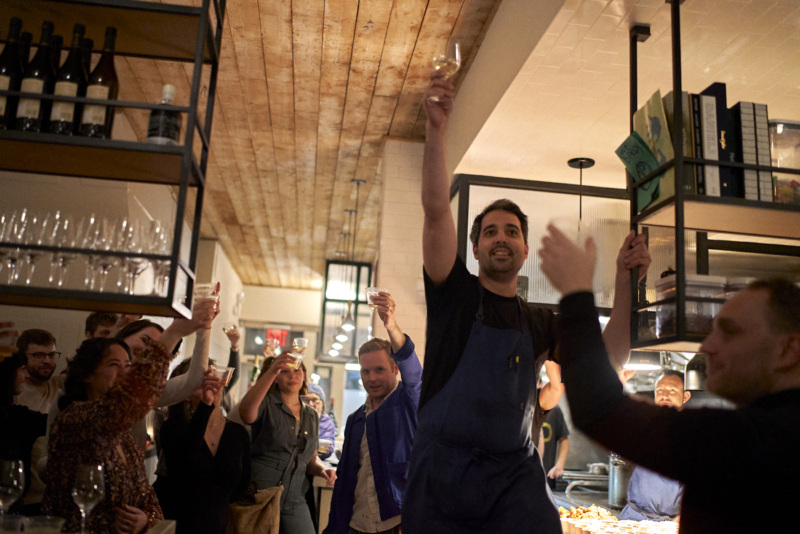
Can you tell me more about your plans for the existing Oxalis space?
It’s going to be a space where we will highlight some baking, like the cafes in Italy that we like. It’ll be slightly European. We really want to expand our baking, and we want to turn the bar room into a dining room, and offer some sandwiches, salads, and things like that. There’s not a huge lunch crowd in this neighborhood, but we want to meet them if there is. In spring and summer, it’s so busy here around the park, and we want to be a place where you can grab a few things for a picnic. We want to be that spot for people. We never really had a daytime space, so I think that’s really important.
Is there a name yet?
We’re working on it.
It sounds like you have more than one new opening in your future next year, too.
We have more than one project next year. The goal is to open two if not three spaces by the end of next year: the café opening in the Oxalis space being one of them and possibly reopening Oxalis by the end of next year. There’s another space in there too, and we want to be really thoughtful about how we finish them up.
And how are you hoping to stay connected to the community as you grow?
I want to be specific. We do well with fundraisers and things like that. More stuff like that, for sure, will be in our future. We won’t just do sit-down restaurants; we’ll also have grab and go. I think those are essential to neighborhoods and communities, because they are multifaceted spaces, and they really provide for neighborhoods and communities, whether it’s, you know, a bakery, a cafe, or a bar. Finding a way to serve people throughout different services and times of the day, I think that provides so much for guests. With regard to donating funds, and hosting fundraisers for causes we believe in, I think those things are natural to us, and we will do our best in our power to keep that dialogue as part of who we are. Because we believe in that. I think that just believing in cooking good food or thoughtful food that’s sustainable, and made with products we care about, that’s also a part of us being in touch with our community, too.
The last day of service for Oxalis will be Dec. 31.
Deanna Ting is Resy’s New York Editor. Follow her on Instagram and X (formerly Twitter). Follow Resy, too.


